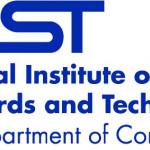- 업종: Technology
- Number of terms: 2742
- Number of blossaries: 0
- Company Profile:
The National Institute of Standards and Technology (NIST) — known between 1901 and 1988 as the National Bureau of Standards (NBS) — is a measurement standards laboratory and a non-regulatory agency of the United States Department of Commerce. The institute's official mission is to promote U.S. ...
A method of open addressing for a hash table in which a collision is resolved by putting the item in the next empty place given by a probe sequence. The space between places in the sequence increases quadratically.
Industry:Computer science
A method of open addressing for a hash table in which a collision is resolved by searching the table for an empty place at intervals given by a different hash function, thus minimizing clustering.
Industry:Computer science
A method of open addressing for a hash table in which a collision is resolved by searching the table for an empty place at intervals given by a different hash function, thus minimizing clustering.
Industry:Computer science
A method to analyze the complexity of an algorithm by diagramming the recursive function calls. Formal Definition: A recursion tree T(p) of degree p is either (i) null or (ii) has p children which are recursion trees.
Industry:Computer science
A minimal perfect hashing function for keys in S such that if k1, k2 ∈ S and k1 > k2, then f(k1) > f(k2).
Industry:Computer science
A minimal variable-length character coding based on the frequency of each character. First, each character becomes a one-node binary tree, with the character as the only node. The character's frequency is the tree's frequency. Two trees with the least frequencies are joined as the subtrees of a new root that is assigned the sum of their frequencies. Repeat until all characters are in one tree. One code bit represents each level. Thus more frequent characters are near the root and are coded with few bits, and rare characters are far from the root and are coded with many bits.
Industry:Computer science
A minimal variable-length character coding based on the frequency of each character. First, each character becomes a one-node binary tree, with the character as the only node. The character's frequency is the tree's frequency. Two trees with the least frequencies are joined as the subtrees of a new root that is assigned the sum of their frequencies. Repeat until all characters are in one tree. One code bit represents each level. Thus more frequent characters are near the root and are coded with few bits, and rare characters are far from the root and are coded with many bits.
Industry:Computer science
A minimal variable-length coding based on the frequency of each character. Similar to a Huffman coding, but joins k trees into a k-ary tree at each step, and uses k symbols for each level.
Industry:Computer science
A minimal variable-length message coding based on the frequency of each character. The message is represented by a fraction which is the repeated offset-plus-product reduction of the range (offset) and probability (product) of each character.
Industry:Computer science
A minimum-length rectilinear tree connecting a set of points, called terminals, in the plane. This tree may include points other than the terminals, which are called Steiner points.
Industry:Computer science
